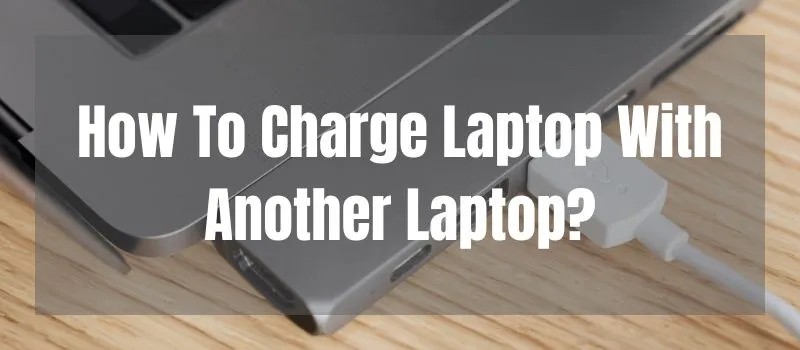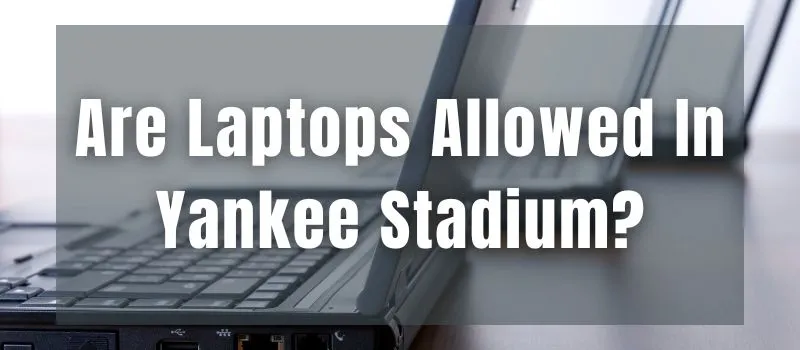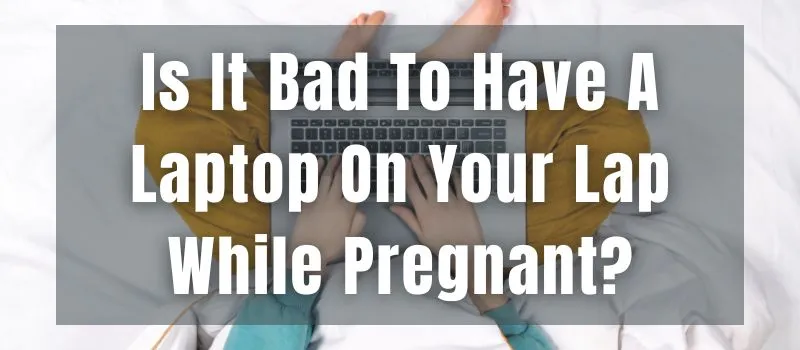Concerned about how safe your laptop’s webcam really is? Learn about the threats to your privacy and the steps you may take to prevent them. The answer to the question “Can a laptop webcam be hacked?” and the steps you may take to safeguard yourself are detailed below.
Can a laptop webcam be hacked? is a common thought in today’s digital age, when privacy issues are becoming increasingly pressing. It’s frightening to think that someone could be secretly watching our cameras from afar. Let’s go into this issue and see what we can find out.
The short answer is yes, a laptop webcam can be hacked. With the advancement of technology, cybercriminals have found sophisticated ways to exploit vulnerabilities in our devices, including our webcams. They can gain unauthorized access and potentially spy on unsuspecting individuals, capturing their private moments and compromising their privacy.
But we shouldn’t let our dread paralyze us in the face of these dangers. We can preserve our privacy and prevent potential webcam hacks by being aware of the hazards and taking preventative action.
This article will examine the many techniques used by hackers, cover precautions you can take to secure your webcam, and offer advice from prominent cybersecurity experts on how to keep up with the rapidly changing digital environment.
So, if you’re curious to know more about the dark side of webcam hacking and how you can defend yourself against such intrusions, join us as we unravel the intricacies of this pervasive issue. Together, let’s empower ourselves with knowledge and ensure our privacy remains intact in this interconnected world.
Learning How To Hack A Webcam
Webcam hacking refers to unauthorized access to a laptop’s camera by malicious individuals. These hackers gain control over the webcam, enabling them to record videos or capture images without the user’s knowledge. With the increasing prevalence of sophisticated hacking techniques, it’s crucial to be aware of the potential risks and take necessary precautions.
Table of Contents
Can a Laptop Webcam Be Hacked?

You may be pondering this if you are worried about the safety of your laptop’s webcam. Can you hack a laptop’s webcam? Understanding the risks involved with webcam hacking is crucial in this digital age when cyber threats are a serious worry. Find out how simple it is to hack a laptop’s webcam, get tips on how to prevent this, and stay safe online.
Laptop webcam hacking is indeed possible. With advancing technology, cybercriminals have developed sophisticated methods to exploit vulnerabilities in our devices. This includes gaining unauthorized access to our webcams, potentially compromising our privacy. There’s no need to panic. By staying informed and taking proactive steps, you can significantly reduce the risk of webcam hacking.
To help you safeguard your privacy, we will delve into the various techniques hackers use to compromise webcams and provide practical tips to secure your webcam from potential intrusions. We have consulted renowned cybersecurity experts in this field to offer their insights and recommendations, ensuring you receive accurate and trustworthy information.
So, come up if you’re worried about the safety of your laptop’s webcam and want to find out how to safeguard it from any attacks. In today’s globally networked society, it’s important to know how to protect yourself and your camera from potential threats.
How Can A Laptop Webcam Be Hacked?
Malicious Software and Remote Access Trojans (RATs)
Hackers often employ malicious software and Remote Access Trojans (RATs) to gain control over laptop webcams. These programs can be installed unknowingly through phishing emails, infected websites, or untrusted software downloads. Once installed, they grant unauthorized access to the webcam, compromising your privacy.
Exploiting Vulnerabilities
Webcams can have security flaws that hackers can use to take control, just like any other technology. These vulnerabilities may be present in the webcam’s hardware or software, and if left unpatched or unaddressed, they become potential entry points for hackers.
Social Engineering
Social engineering is yet another technique used by hackers. By manipulating individuals through clever tactics, hackers can convince them to grant access to their webcams. For instance, they may pose as technical support personnel, urging users to download certain software to resolve a fictitious issue.
Webcam Access via Malware
Malware can be specifically designed to target webcams and gain unauthorized access. Once the malware infects a laptop, it can disable security measures and covertly control the webcam. This type of malware is often distributed through infected files or downloads.
Signs Of Webcam Hacking
Unexpected Webcam Activation
If you notice your laptop’s webcam activating unexpectedly, even when you haven’t initiated any video-related activities, it could be a sign of hacking. Pay close attention to any unusual webcam activity, such as the LED light indicating camera use, without any apparent reason.
Increased Network Activity
Webcam hacking requires data transfer, which may result in increased network activity. Keep an eye on your network usage and be wary of sudden spikes or unexplained data transfers, as they could indicate an unauthorized access attempt.
Strange System Behavior
Hacked webcams can lead to unusual system behavior. If your laptop starts slowing down, freezing, or exhibiting other odd behaviors, it might be a result of unauthorized webcam access. Be vigilant and investigate further if you suspect any such issues.
Webcam Indicator Light Not Working Properly
Most laptops have an indicator light that illuminates when the webcam is in use. However, hackers can manipulate the system to disable this light, allowing them to operate the webcam without raising suspicion. If you notice the indicator light behaving abnormally, it’s crucial to investigate the issue.
Protecting Your Webcam From Hacking
Keep Your Operating System and Software Updated
Regularly updating your operating system and software is vital for protecting against webcam hacking. These updates often include security patches and bug fixes, addressing vulnerabilities that hackers may exploit. Enable automatic updates whenever possible to ensure you’re always running the latest versions.
Use Reliable Security Software
Investing in reliable security software is crucial for protecting your laptop from all forms of cyber threats, including webcam hacking. Choose a reputable antivirus and anti-malware program that offers real-time scanning and webcam protection features.
Be Cautious with Downloads and Links
Exercise caution when downloading files or clicking on links, especially from untrusted sources. Malicious software can often be disguised as legitimate downloads or attachments. Before opening any files or going to any unfamiliar websites, be sure to check the source.
Cover Your Webcam When Not in Use
A simple yet effective measure to protect your privacy is to cover your laptop’s webcam when it’s not in use. You can use adhesive webcam covers or even a piece of opaque tape. This physical barrier ensures that even if unauthorized access is gained, the camera remains obstructed.
Practice Safe Internet Habits
Adopting safe internet habits is paramount in protecting against webcam hacking. Avoid clicking on suspicious ads, refrain from downloading files from untrusted sources, and be wary of sharing personal information online. Stay vigilant and think twice before granting access or sharing data.
Disable Remote Access
To further enhance your webcam’s security, disable remote access to your laptop whenever possible. Hackers can exploit the remote access feature, so you should disable it unless you have a legitimate reason to do so.
FAQs
Can hackers access my webcam without my knowledge?
Yes, hackers can gain access to your webcam without your knowledge through various methods, such as malicious software, exploiting vulnerabilities, or social engineering tactics.
Is webcam hacking a common occurrence?
Webcam hacking is a concerning issue but not as common as other forms of cyber threats. It’s essential to remain cautious and take preventive measures to protect your privacy.
Should I cover my laptop webcam?
Covering your laptop webcam when not in use is a recommended precautionary measure. It provides an added layer of security against potential unauthorized access.
Can antivirus software protect against webcam hacking?
Yes, reliable antivirus software often includes features that safeguard against webcam hacking. Ensure you choose a reputable program that offers webcam protection capabilities.
What should I do if I suspect my webcam has been hacked?
If you suspect your webcam has been hacked, immediately run a thorough scan using your antivirus software. Consider covering your webcam and consulting a cybersecurity professional if needed.
Can hackers spy on me through my laptop microphone as well?
While webcam hacking is a concern, hackers can potentially gain access to a laptop’s microphone too. It’s essential to be cautious and consider employing additional measures to protect your privacy.
Conclusion
In today’s digital age, protecting your laptop’s webcam from hacking is a crucial step. You can stay safe online by recognizing the signs of hacking, implementing preventive measures, and staying informed about the risks.
Don’t forget to keep your software up-to-date, use reliable security software, cover your webcam when it’s not in use, and practice safe internet habits. Thus, you can mitigate risks and ensure your privacy remains intact.
Read More:




